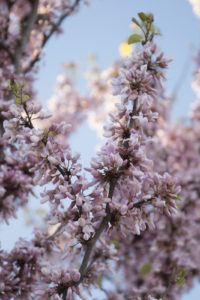Native plants are frequently suggested as the perfect garden plants since they are well suited to growing in their native space. But because today’s new plants are being generated to have all sorts of good qualities like clumping growing habits as well as pest and disease resistance, it’s crucial to know why these plants are essential and which ones are will work best in your landscape.
A Native Plant
Native plants are plants that grew in the area. These plants develop naturally in a location before humans started to bring in outside plants to sow. Plants native to a region adjust to the cultural conditions and climate of an area, becoming part of the ecosystem.

Eastern Redbud
Plants could be native to North America, but not native to each state in the U.S. These plants can thrive in particular areas, like a plant native to Portland, Maine might not do well in Portland, Oregon.
There’s even more uncertainty with native plants when you consider the fact that a plant can be local to very different climates. For instance, the Eastern Redbud is local to both New York and Georgia. However, trees that grow in Georgia have acclimated to Georgia’s climate and not the Big Apple’s.
Preferably, it would be best to know where the plants you are buying were grown. In reality, most plants being sold are from big farms, and you could never be sure where your plant came from. However, there’s hope your plant will adapt.
Gardening with Native Plants
For starters, these plants take fewer resources and work. Since local plants have spent lifespans adjusting to your lawn’s growing conditions, they won’t need much in the way of mulching, fertilizer, and spraying.
New plants usually make similar claims. However, they haven’t been tested. Plant descriptions alter the longer they are on the market and thrive in a vast range of conditions. They might be able to endure the winters in Zone 5, but the humidity of summer could kill them. If your tree dies, you will need to schedule tree removal service. .
Locally grown plants typically are well behaved in the garden and are never invasive. Having grown in the community, they have native predators that assist in keeping them in check. They depend on your plants for nesting, food, and shelter.
Contact Orchard Park Tree Service if you would like to schedule a consultation with an arborist



